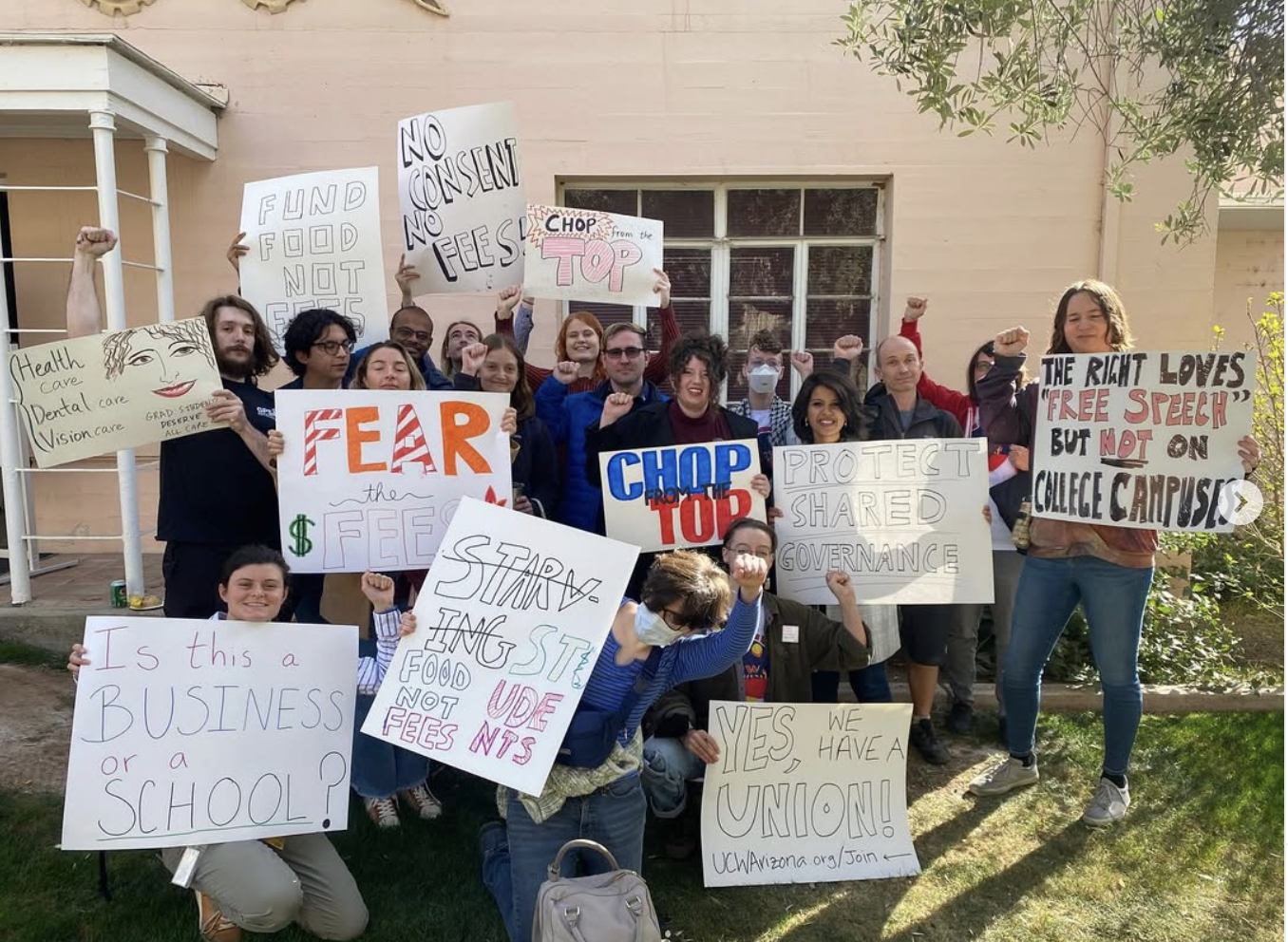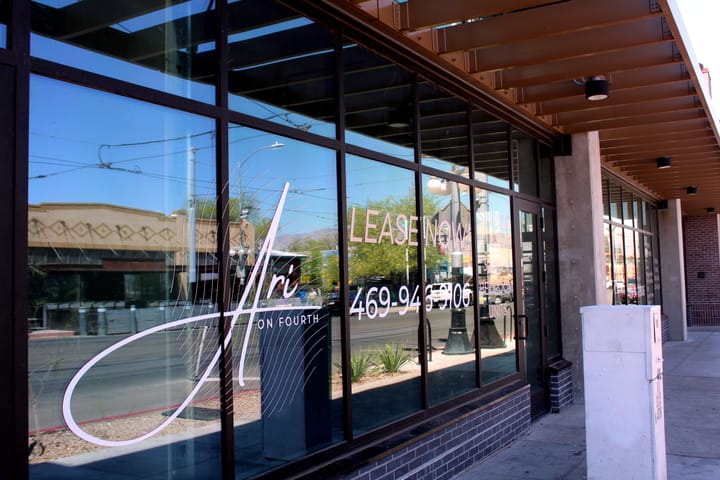UA students voice fears over Trump’s education policies, financial aid cuts
University of Arizona students express growing concern over potential changes to financial aid and education policies, fearing disproportionate impacts on minority students and academic opportunities.

University of Arizona students are fearful about potential changes to financial aid and President Donald Trump’s approach to education, saying that these shifts could disproportionately harm minority students and limit academic opportunities.
Since Trump took office, he’s issued a wave of executive orders reshaping policies across the country and impacting millions of Americans.
Tucson Spotlight took to the UA mall to hear students’ thoughts about the new administration’s early actions.
Before the election, Spotlight found that student opinions of Trump were split. But in the weeks following his victory, fewer students have been voicing support and more expressing frustration and concern over these initial divisions.
Many students say they feel uneasy about the rapid policy changes, fearing they could upend their education and future opportunities, with their growing dissatisfaction reflecting a broader uncertainty about what lies ahead.
Don Markham, a nonbinary Taiwanese-American graduate student and researcher, has felt the direct impact of the Trump administration’s policies, particularly government shutdowns that have derailed their academic trajectory.
Markham had planned to apply for NIH-funded postdoctoral positions, but with the possibility of funding being frozen, their future in pursuing their graduate degree is now uncertain.
Besides financial and professional setbacks, Markham fears the broader implications of recent policies — particularly the administration’s ban on trans athletes in women’s sports. To them, it signals an escalating wave of discrimination against trans and nonbinary individuals, reinforcing a sense of political persecution.
“I don’t think there’s any issue Trump will prioritize at all besides himself,” Markham said. “Most people in the labs are fearing for their jobs.There’s a lot of stress going on.”

UA student Anisa Vazquez voiced her frustration with the Trump administration's early actions, particularly regarding its economic policies and proposed changes to the Free Application for Federal Student Aid, or FAFSA. She receives funding through FAFSA which allowed her to spend her tax refund money to buy a car rather thanpay for classes. Vazquez worries that limiting federal financial aid could prevent many minority students from continuing their education.
“I rely very heavily on FAFSA,” Vazquez said. “If he revokes FAFSA and all of that, I feel like a lot of minorities here on campus aren’t going to have the same resources as before, which might lead to a decline of students continuing to attend.”
Student Stella May shares similar concerns about financial aid, especially with the Trump administration’s uncertain stance on funding for the Department of Education.
May, who also depends on financial aid to afford her education, fears that any cuts could have far-reaching consequences, particularly for students with disabilities who rely on federal resources for support.
“He keeps going back and forth,” May said. “I’m also worried about kids with disabilities because shutting down the Department of Education takes away a lot of help for them.”
Tanner Saadi, a graduate student and researcher, said he’s deeply concerned about the impact of the Trump administration’s policies on academic funding and research stability. He fears that cuts to research grants and widespread political interference could disrupt ongoing projects and create uncertainty for scholars. While the administration targets diversity, equity, and inclusion programs, Saadi sees broader consequences, as funding restrictions could affect a wide range of academic initiatives.
“They just threw everything into chaos.” Saadi said. “Trump saying he wants to deport foreign students who protest (and) the fact that he thinks he can just get around the First Amendment because they’re not citizens — that is very concerning.”
He worries that political repression could extend to university campuses, particularly with proposals to deport foreign students who participate in protests.
Saadi also believes that increasing corporate influence over government agencies, particularly from figures like Elon Musk, threatens research independence and institutional integrity.
Jack Hooker, a pharmacy student specializing in vaccine science, is deeply concerned about the direction of the new administration, particularly its stance on science and education.

With vaccine research already facing public skepticism, he worries that further politicization of infectious disease science could undermine public trust and hinder advancements in life-saving treatments. Any reduction in funding for medical research, he fears, could directly impact the development and accessibility of vaccines.
“I hate every moment of this new administration, if I’m being quite honest,” Hooker said. “Abolishing the Department of Education is just absolutely ridiculous. But yeah, just keep them dumber, I guess — that’s what he’s doing.”
He sees the proposed changes to the Department of Education as an effort to weaken public education and limit opportunities for marginalized communities. He also notes growing fears among his peers, particularly in response to immigration policies that have left many students uncertain about their futures.
For Sabrina Villanueva, the biggest concern lies in the potential for funding cuts that could lead to the removal of certain classes or resources, including textbooks. She feels that students have limited influence over these decisions beyond protesting, and she stresses the importance of keeping students informed about policy changes that could affect their access to financial aid.
“My main concern is just money and taking away certain classes, too,” Villanueva said. “Keep your students informed on any new policy issues based on financial aid so they can be aware of it and try to find outside loan options.”
Kate Murray, a 30-year-old nontraditional senior, is deeply concerned about government overreach, particularly when it comes to funding cuts that could impact students like her.
As someone whose education is largely made possible by a National Science Foundation DEI grant, Murray worries that the current administration's efforts to dismantle such initiatives could strip away crucial financial support for underprivileged students pursuing STEM fields.
“I haven't seen one executive order I agree with yet,” Murray said.
Without this funding, she admits she might have already dropped out, highlighting how policy decisions can have direct, life-altering consequences.
Murray said she’s frustrated by what she sees as a trend toward prioritizing the wealthy while slashing resources for everyday people. She points to billionaires who avoid taxes while students like her struggle to stay in school.
Despite her disillusionment with both major political parties, Murray finds hope in emerging leaders who challenge the status quo, mentioning U. S. Rep. Alexandria Ocasio-Cortez, a Democrat from New York, and U.S. Rep. Jasmine Crockett, a Democrat from Texas To take action, she is making calls to lawmakers and advocating for change.
"The thought of there being change gives me hope," said Murray.
Angelina Maynes is a University of Arizona alum and reporter with Tucson Spotlight. Contact her at angelinamaynes@arizona.edu.
Tucson Spotlight is a community-based newsroom that provides paid opportunities for students and rising journalists in Southern Arizona. Please support our work with a paid subscription.




